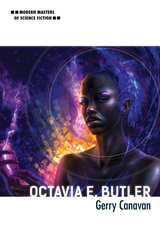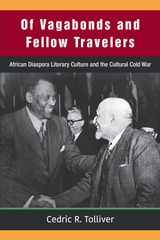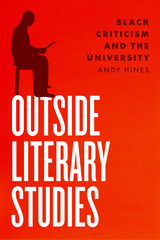5 start with O start with O

Gerry Canavan offers a critical and holistic consideration of Butler's career. Drawing on Butler's personal papers, Canavan tracks the false starts, abandoned drafts, tireless rewrites, and real-life obstacles that fed Butler's frustrations and launched her triumphs. Canavan departs from other studies to approach Butler first and foremost as a science fiction writer working within, responding to, and reacting against the genre's particular canon. The result is an illuminating study of how an essential SF figure shaped themes, unconventional ideas, and an unflagging creative urge into brilliant works of fiction.

The emergence of a master artist alongside his first major collection, created during a golden age of art in the nation’s capital
Renowned for his innovative work with silkscreen printing, Lou Stovall’s works are part of numerous collections, including the National Gallery of Art, Smithsonian American Art Museum, and Phillips Collection. Washington Post art critic Paul Richard once wrote, “As a printer of his own art, and of the art of many others, as a framer and installer and shepherd of collections, Stovall has inserted more art into Washington than almost anyone in town.”
Of the Land: The Art and Poetry of Lou Stovall presents a series of prints and accompanying poems that showcase the artist’s work during the 1970s, when he was developing his unique silkscreen technique and exploring both natural and abstract elements. An introduction by the book’s editor and artist’s son, Will Stovall, along with an autobiography from the artist anchor the Of the Land series in its time and place—a period of jazz, protest, and prolific art production in Washington, DC, that birthed the Washington Color School. Stovall’s contributions, as well as his collaborations with well-known artists like Jacob Lawrence, Sam Gilliam, Elizabeth Catlett, and Robert Mangold, have cemented him as one of the most significant American artists of our age.
Part of a tradition of African American artists and thinkers who met at Howard University, Lou Stovall created the Workshop in 1968, a small, active silkscreen studio printing posters for arts and DC-focused events. His deep influence on the silkscreen medium, the art community, and DC will be part of his lasting legacy.


In Off Whiteness: Place, Blood, and Tradition in Post-Reconstruction Southern Literature, Izabela Hopkins explores the remaking of whiteness in the Post-Reconstruction South as represented in literary fiction. To focus her study, she discusses the writings of four prominent figures: Thomas Nelson Page, Ellen Glasgow, Charles Waddell Chesnutt, and Alice Dunbar-Nelson, who contributed to discussions of racial and social identity during the post–Civil War South through poetry, journalism, essays, novels, and more.
Off Whiteness draws from both sides of the color line—as well as from both the male and female experience—to examine the ambivalence of Southern whiteness from three particular vantage points: place, ideality, and repeatability. Hopkins develops her analysis across nine chapters divided into three parts. In her exploration of these four writers with differing backgrounds and experiences, she utilizes both their well-known and lesser-known texts to argue against the superficial oversimplification that “whiteness requires blackness to define itself.”
Hopkins’s analysis not only successfully grapples with a wide range of post-structural theories; it also approaches the significance of language and religion with intention and sensitivity, thereby addressing areas that are typically ignored in whiteness studies scholarship. The interdisciplinary nature of Off Whiteness positions it as an engaging text relevant to the work and interests of scholars drawn to American and Southern history, cultural and social studies, literary studies, etymology, and critical race theory.

This striking contribution to Black literary studies examines the practices of Black writers in the mid-twentieth century to revise our understanding of the institutionalization of literary studies in America. Andy Hines uncovers a vibrant history of interpretive resistance to university-based New Criticism by Black writers of the American left. These include well-known figures such as Langston Hughes and Lorraine Hansberry as well as still underappreciated writers like Melvin B. Tolson and Doxey Wilkerson. In their critical practice, these and other Black writers levied their critique from “outside” venues: behind the closed doors of the Senate Permanent Subcommittee on Investigations, in the classroom at a communist labor school under FBI surveillance, and in a host of journals. From these vantages, Black writers not only called out the racist assumptions of the New Criticism, but also defined Black literary and interpretive practices to support communist and other radical world-making efforts in the mid-twentieth century. Hines’s book thus offers a number of urgent contributions to literary studies: it spotlights a canon of Black literary texts that belong to an important era of anti-racist struggle, and it fills in the pre-history of the rise of Black studies and of ongoing Black dissent against the neoliberal university.
READERS
Browse our collection.
PUBLISHERS
See BiblioVault's publisher services.
STUDENT SERVICES
Files for college accessibility offices.
UChicago Accessibility Resources
home | accessibility | search | about | contact us
BiblioVault ® 2001 - 2024
The University of Chicago Press









